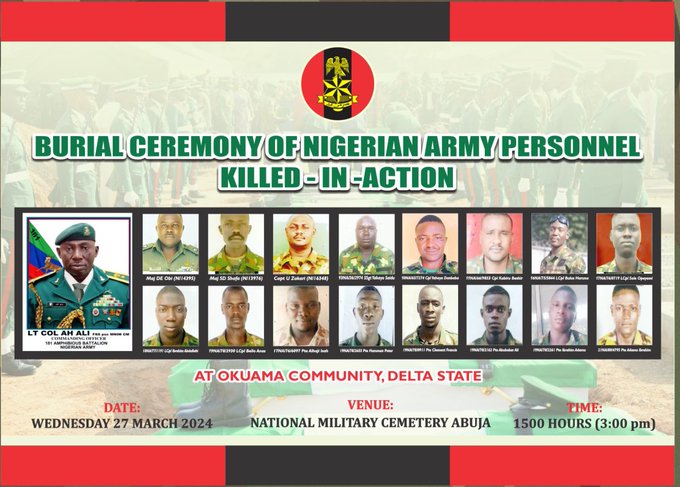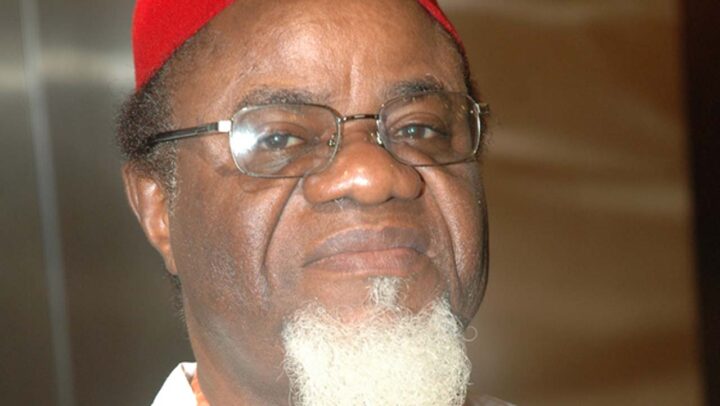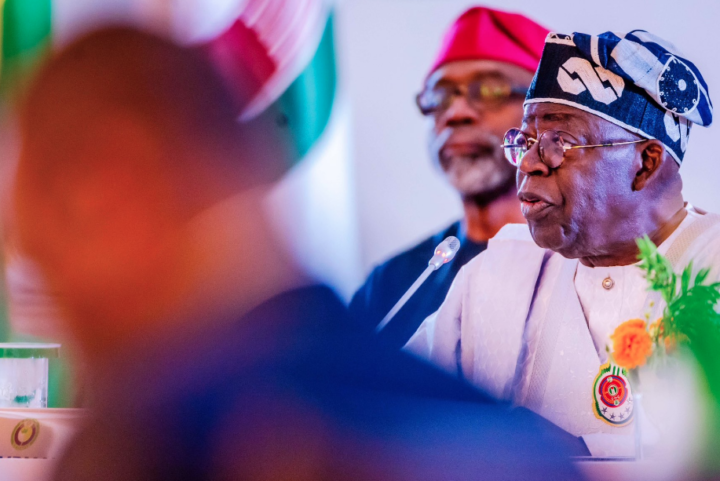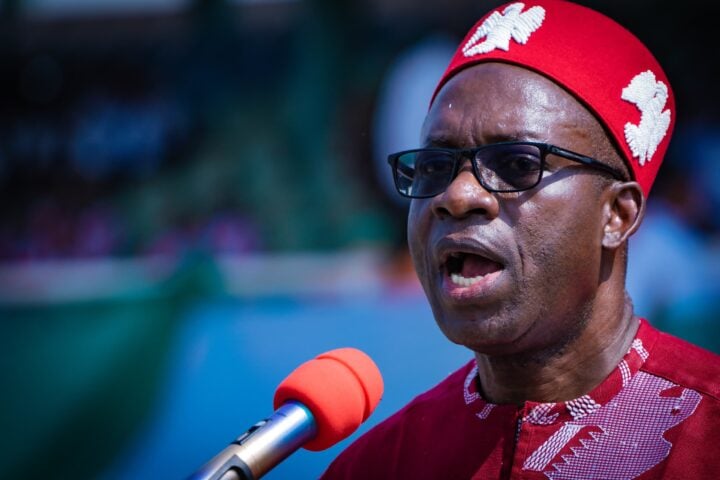When Lt. Colonel Abdullahi Hassan Ali, 49, assumed duties as commanding officer of the 181 Amphibious Battalion of the Nigerian Army, all his mother, Hassana, could do was pray.
Three years ago, Ali’s younger brother, Jamilu, a captain, had been killed in action by bandits in Katsina State. As an officer in the north-east, Ali himself had escaped death a number of times in battles against Boko Haram insurgents.
His father had died after retirement from the army. After his death, Ali’s ageing mother has been nursing her loss, in addition to coping with the death of her son in Katsina, and later, the deaths of her daughter and son-in-law in a road accident.
But Ali, a soldier’s soldier promoted to the rank of lieutenant colonel in November 2020, knew better than to demur when he was moved from commander of the 63 Brigade Garrison in Asaba to head the amphibious battalion. The battalion was part of efforts by the military to restructure the Joint Task Force (JTF) in 2016, following widespread oil theft in the region which, according to the Financial Times, had reached $1 billion monthly.
Advertisement
Task force dilemma
In a statement at the time, the military said the restructuring of the JTF was to “tackle the emerging security challenges in the Niger Delta region such as piracy, bunkering, vandalism and other criminal activities prevalent in the area.”
The task force comprising other services, but led by the military, as expedient as it was, was also an official admission that the Police could no longer cope with the situation. Oil money, mixed with militancy and violent local politics in the area, has created and nurtured private armies with money, weapons and political clout comparable to rogue states.
Advertisement
The relationship between the state and some of these private armies is complicated, even incestuous. With revenues in billions of naira monthly, for example, a few are better equipped than the military.
But politicians don’t mind. In their desperate search for solutions to the problem of oil theft and also to consolidate their political hold, they have indulged the private armies. Officers deployed in the area are left to invent their own ways of serving two masters – the state and the communities on the one hand, and the powerful private armies on the other.
With a population of about 31 million and over 40 ethnic groups, the Niger Delta is a cauldron, radicalised by decades of poverty, agitation, militancy and violent politics. A quarrel between a husband and wife could spill into an intra-communal dispute; an intra-communal dispute could engulf the community.
On March 14, a lingering spark of dispute between Okuama and Okoloba (one Urhobo and the other Ijaw, two of the largest ethnic groups in Delta State) over a fish farm, erupted in violence.
Advertisement
More questions…
How did the officer from the amphibious battalion who led a team to Okuama on March 14 on what was supposed to be a peace mission understand and define his mandate? Was the mission to Okuama over the alleged kidnap of one Anthony Aboh from neighbouring Okoloba (in retaliation for an Okuama youth allegedly killed by persons suspected to be from Okoloba), his job as a soldier or that of a first responder, say, the police? Was the officer like many others, too embedded in the local politics to draw the line? Or did he anticipate that after the failure of the peace accord facilitated by the Delta state government, military mediation was necessary to quench the fire?
Media reports suggested that leaders in Okuama broke kola nuts with the officer (some accounts say he was a major) and his team when they arrived. At what point did murderous violence erupt? If people in the community were opposed to the officer taking their leader away for statements at the army base in Bomadi, as was reported, was murdering him and his team and seizing their weapons the answer?
Meanwhile, back at the base on the same day, Lt. Col. Ali did not know what was happening in Okuama. He was in Kano only two weeks earlier to visit his ailing mother, his wife, Hauwa, and six children, and may have visited again at Sallah, if he got a pass. Okuama was the last thing on his mind.
Advertisement
And then, it happened. Soldiers who had been waiting in a boat at the Okuama creek escaped after the peace team was attacked and reported to Ali what had befallen the major and the three other soldiers believed to have followed him into the town.
Hindsight
Advertisement
Hindsight is 20/20. There has been no shortage of opinions about what might have been. Given the enormity of what happened to the major and his men, couldn’t Ali have done a recce, and possibly mobilised other services before going in? Did the alleged use by the military of boats belonging to a private security company perceived to have a vested interest in the conflict further endanger this mission?
In a conflict zone where the private armies have gunboats, specially fitted crafts, and relatively modern arms, while the military depends largely on improvisations, how is a commanding officer supposed to respond to an emergency like the one in Okuama, where his men had been murdered and their weapons seized?
Advertisement
Perhaps, out of a sense of holy rage, Ali took the plunge. He gathered his men and went to Okuama. Sadly, that was his last journey. He and his men were ambushed and brutally killed by people they had sworn to protect.
The savagery has called to question the humanity of the perpetrators. Okuama has been compared with Odi in Bayelsa State in 1999, and Zaki Biam in Benue State, two years later where military operations killed hundreds of people extrajudicially.
Advertisement
“Those who make such comparisons are mistaken,” a retired top military officer told me over the weekend. “In Odi and Zaki-Biam the communities were harbouring persons believed to have committed crimes against the state. Okuama was savage militancy.”
Perhaps one thing common to the three, however, is the increasing mismanagement, if not weaponisation of conflicts by politicians, a posture that has further damaged and compromised an undertrained, undermanned, underfunded and under-equipped military. Command and control is fuzzy.
In a crime scene like Okuama, for example, a commanding officer has to worry about what his chief would say and where Abuja stands with the private armies and local strongmen. Being in good standing with the host states, and of course, the morale of his troops, are also not far from his mind. The art of serving many masters, itself an enemy of a single-minded mission, complicates the terrain.
Tail wags dog
It’s hard to say at what point the tail of a savage few started wagging the dog of what by several accounts had been a largely peaceful community. It’s improbable that the major and his men who went first would have done so if the community had a reputation for collective savagery. Now, the entire community has a bad name and a difficult future.
The memory of the dead deserves justice and it’s just as well that President Bola Ahmed Tinubu has made this clear. Perhaps, also, it is time to review the role of the military in domestic conflicts.
Sadly, the harvest of heart-wrenching violence in many parts of the country today, and in this instance, the Niger Delta, was largely seeded during Nigeria’s civil war. During the war, swathes of the region were ruined and radicalised by the extrajudicial killings of thousands of innocent civilians. We can’t afford to let the mission to Okuama haunt us 57 years from now.
If two wrongs don’t make a right, we’ll do well to avoid a third, not just for the sake of the dead and their grieving families, but also to break this cycle of violence and grief.
Ishiekwene is the editor-in-chief of LEADERSHIP
Views expressed by contributors are strictly personal and not of TheCable.







